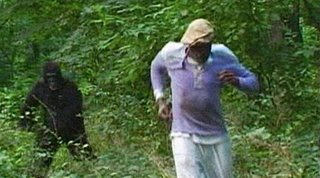
The 2008 Tribeca Film Festival (April 23 – May 4) could best be described as the year it edged closer to finding its niche in the overcrowded festival schedule. Cutting 40 films off of its slate, lowering ticket prices and (this is the biggie) centralizing the festival in Union Square — the first time TFF has had a home base since its first two years when it was in Lower Manhattan — the seventh edition still had its moments of gaudiness. But, for the most part, cineastes actually had something to smile about.
With not much buying happening at Sundance earlier in the year, many were certain that TFF would go by with its usual big-budgeted red carpet premieres (it did:
Baby Momma,
Speed Racer) and ho-hum indie Sundance rejects. But TFF had a surprising buying surge this year with IFC and Magnolia taking the Spanish thriller
La Habitación de Fermat and the Matthew Broderick/Brittney Snow starrer
Finding Amanda, respectively. And journalists found a juicy story when Errol Morris admitted that he paid for some of the interviews in his
Standard Operating Procedure, which screened at the festival as a sort of sneak peek before its theatrical release.
“I was probably the biggest naysayer years one and two of the festival,” says IFC Films head Jonathan Sehring. “I thought [the festival] was kind of a sham, but I think their programming is very good. They are up against a lot, bookended by Sundance and Cannes with Berlin in there too.”
“Everyone I’ve spoken to shares my feelings that this was a real good one,” says TFF artistic director Peter Scarlet days after the fest wrapped. “I think we smoothed out a lot of the rough edges. Having a central area certainly didn’t hurt and trimming down the program the way we did maybe [hit] just the right size.”
Though many of the premieres had more hype behind them than payoff — James Mottern’s
Trucker was a disappointment as was John Walter’s
Theater of War, a behind-the-scenes look at The Public Theater’s staging of
Mother Courage — there were some films that left the festival stronger than they came into it. The narrative prizewinning Swedish vampire tale
Let the Right One In was picked up by Magnolia Films’ genre arm Magnet Releasing, and Brian Hecker’s comedy
Bart Got a Room, about a high school student looking for a date to the prom, had a lot of buzz during the festival and as of press time is closing in on a distributor. And while some critics were negative on Richard Ledes’s
The Caller, which got the “Made in NY” Narrative Award, I thought it’s neo-noir style and strong performances by Elliot Gould as a private eye and Frank Langella as a whistle-blowing energy exec outweighed its below-average script. Trisha Ziff and Luis Lopez’s entertaining and informative doc
Chevolution showed how a photo of the revolutionary Che Guevara has become a profitable gimmick put on everything from T-shirts to coffee-mugs. And Melvin Van Peebles, who came to the festival two years ago as the subject of Joe Angio’s excellent
How to Eat Your Watermelon in White Company (And Enjoy It), returned with his first feature-length film in eight years,
Confessionsofa Ex-Doofus-ItchyFooted Mutha (pictured above). Starring the 75-year-old Van Peebles, the picture is part autobiography, part experimental film and part black history. Filled with funny one-liners from Van Peebles’s poetic tongue, it also has an endearing lo-fi quality that’s a joy to watch.
Can TFF keep the momentum going for ’09 and beyond? Scarlett admits there’s no guarantee that the real estate the festival enjoyed in Union Square this year will be available to them next year. But
The Caller’s Richard Ledes says that doesn’t matter. The thing that TFF has going for it is New York City. “The level of attention you get here is rare compared to other festivals outside of the biggies,” he says. “You get audiences from all walks of life. You don’t get that throughout most of the country.”
Labels: Festivals
# posted by Jason Guerrasio @ 7/07/2008 11:40:00 AM
Comments (0)

